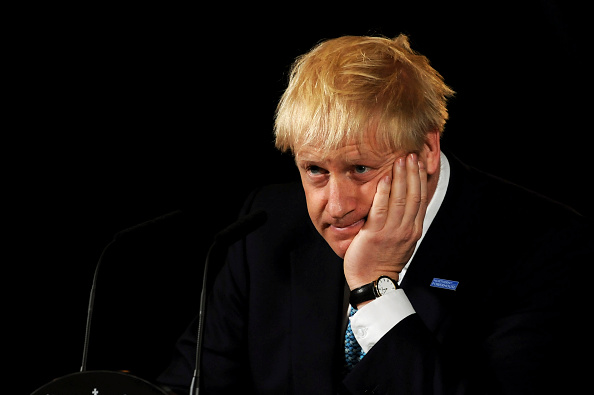UK economy to hit decade-low even with Brexit deal, report warns

Boris Johnson’s Brexit deal will fail to boost the slowing UK economy in 2020, a new report has warned, with weak global growth and continued uncertainty about Britain’s trading relationships set to outweigh any benefits from the agreement.
Read more: Nigel Farage: Brexit party will run in every seat if Boris Johnson rejects olive branch
The British economy is expected to grow just one per cent in 2020, the slowest rate since the financial crisis, economic forecasting group EY Item Club predicted today. The growth rate has been downgraded from a forecast of 1.5 per cent made in July.
Against the odds, Johnson struck a new deal with the European Union in the middle of October. It promises a looser relationship with the 27-country bloc than envisaged in Theresa May’s deal and contains a reworked Irish border proposal.
Although many have argued that a deal will bring certainty to the economy and push up declining business investment and confidence, EY Item Club today said the slowing global economy and the process of striking new trade deals will “likely limit any immediate boost”.
It also said that, should the deal become law, future growth will be lower than previously thought due to the weaker ties with the EU. The economy is expected to expand by 1.7 per cent on average each year from 2021 to 2023.
Yet with voters set to choose a new government at the 12 December General Election, there are “clearly there are significant risks to our forecasts,” said Howard Archer, chief economic adviser to the EY Item Club.
A no-deal Brexit would send growth plummeting to 0.2 per cent in 2020, the group said. It has not modelled the effects of a Labour government.
The report was particularly downcast about business investment. EY’s UK chief economist Mark Gregory said: “The outlook for business investment growth is pretty bleak, with a weaker global economic environment adding to corporate concerns over the UK outlook.”
“A Brexit deal is only the first step in reducing uncertainty and may be offset by concerns over future growth with a divergent EU-UK relationship.”
The report also warned that consumer spending, which has been the bright spot in the UK economy in 2019, is set to slow to a “lacklustre” pace this year and next.
Spending will grow just 1.2 per cent in 2019, EY Item Club predicted, which would be the weakest performance since 2011. It is expected to rise to 1.4 per cent in 2020.
Archer said: “The situation for consumers has been as good as it’s going to get this year, with employment and earnings growth healthy and inflation remaining low.”
Read more: Boris Johnson’s Brexit deal could inflict ‘£70bn hit’ on UK economy
He added: “The labour market is showing signs of weakening, adding to a more negative picture for next year. This is likely to result in slower levels of spending growth for the near term at least.”
(Image credit: Getty)